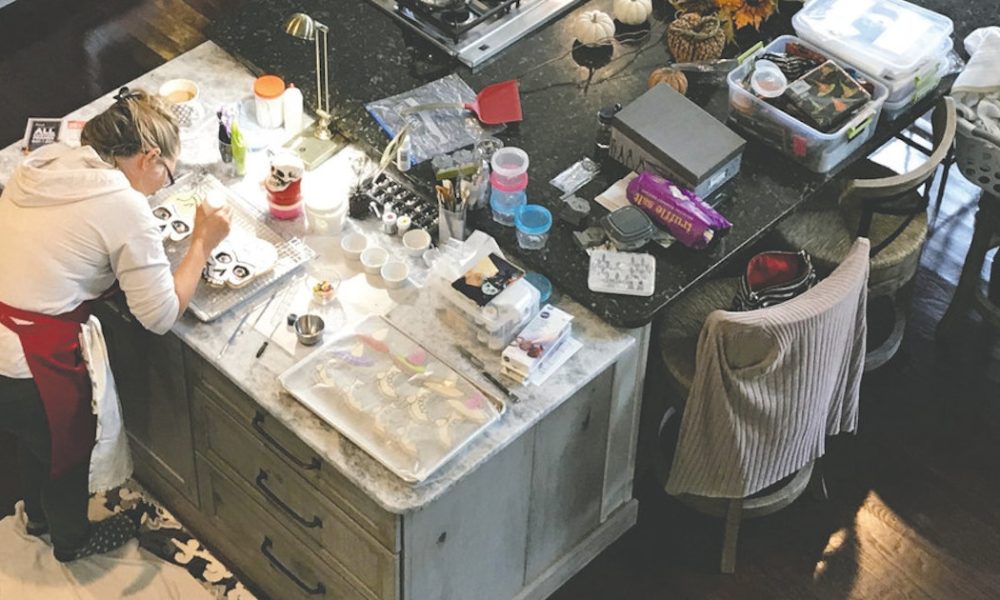 Home bakers have an opportunity to turn a hobby into an at-home business
Home bakers have an opportunity to turn a hobby into an at-home business
CRESWELL – With farmer’s markets accepting applications for vendors, it is the perfect time for prospective entrepreneurs to take advantage of Oregon’s Home Baking Bill.
The bill passed in 2016 and is a residential kitchen exemption for baked goods and confectionary items. The purpose is to reduce barriers in starting new small businesses by allowing items baked in a home kitchen to be sold directly to consumers without a license, and is unique to Oregon.
”A lot of people aren’t aware this exemption exists,” said Alice Morrison, board secretary for Oregon Farmers Market Association and Willamette Valley organizer for Friends of Family Farmers. ”It’s designed to specifically help rural area entrepreneurs. If you make something considered low food safety risk, you don’t need licensing.”
Products that are deemed ”not potentially hazardous” are eligible under the bill, including bread, cakes, pies, doughnuts, pastries, biscuits, cookies, crackers and more that are made for human consumption. Candies and sweets, like salted caramels, marshmallow candies and hard candies are also included.
”Potentially hazardous” items are baked goods that require refrigeration, such as pastries that contain a cream, focaccia-style breads containing vegetables and cheeses, candied fresh fruit products and any meat or shellfish products.
”The spoilage is the main concern,” Morrison explained.
Cannabis edibles are also not included in the exemption because that would require an Oregon Liquor Control Commission (OLCC) license. Pet treats are also not included in the exemption; however, pet treats don’t require a license at all unless they contain meat.
The bill also requires that the baker has a food handler’s card and that products are made in ”a home or area within a rental unit in which a person makes their primary residence,” and although the home will not be inspected unless there is a complaint, it is still required to adhere to sanitation standards of hand washing, separation of chemicals and contaminants (including cigarettes), cleaning of surface areas and keeping pets out of the kitchen.
”That’s the biggest place to get in trouble,” Morrison said. ”A good first step is to get baby gates to keep pets out of the space and clean sufficiently.”
The most important facet of the bill is the labeling process. Morrison said that ”labeling is incredibly important for this exemption to function,” even though it can get complicated. Generally, there will always be specific language that has to be on every label: ”This product is homemade and is not prepared in an inspected food establishment.” Each label also has to have the business name, number and address in case the Oregon Department of Agriculture needs to get ahold of the business owner if there’s an issue, as well as an ingredient list.
For certain items like specialty cakes or single-serving items that may not have a label, the information is allowed to be on the receipt or on a placard.
Morrison also suggests to refrain from providing a health or nutrient claim, because then the business owner has to pay for testing to prove the claim. The same goes for gluten-free claims, instead of stating it is gluten-free, owners can explain the product might not have gluten in it, but it was produced in a facility that isn’t gluten-free.
Common allergies also have to be bolded if presented in your product and listed at the end of the ingredient list or within it.
Home bakers are limited to $20,000 in annual gross sales and can only sell directly to consumers. This includes spaces like farmers markets, festivals, from the baker’s home and farm stands as long as the baker is doing the selling.
Products cannot be sold on consignment or with any third party.
For specific questions, Morrison recommends reaching out to ODA’s Food Safety office at 503-986-4720. Although the bill still has limitations, Morrison explained that it’s helpful for getting a business started and as it grows, all a baker needs is more licensing to be in compliance to expand.
”It’s a calculation everyone has to do for themselves,” she said.








